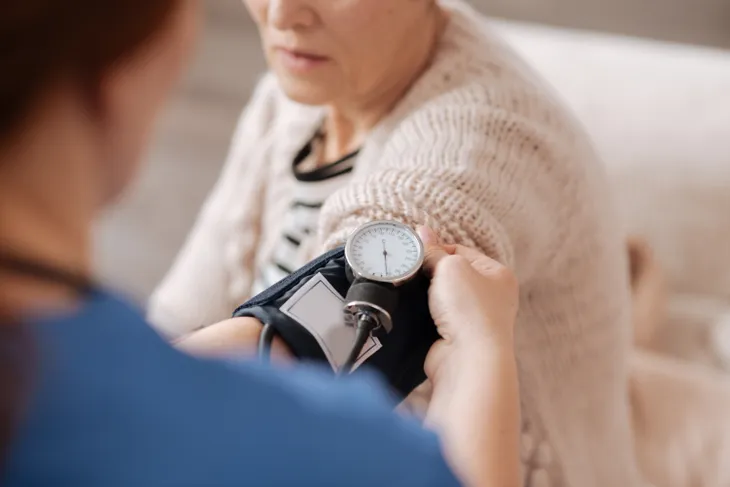Household debt is a major problem in the U.S. and it’s not just about the numbers. Although this Business Insider article claims that American household debt grew to $11.85 TRILLION in the first quarter of 2015), debt is also closely linked to, and impacts, your health.
If you’re not feeling up to your usual standards and your doctor can’t quite place it, you may be suffering from debt fatigue. Canadian Living magazine noted that spending money when you’re trying to pay down debt (known as debt fatigue) creates a sense of failure and disappointment, and the feeling that the situation will never improve. Here are five ways high debt can affect your behavior and health in a negative way…
Higher Blood Pressure
The same Canadian Living magazine study noted that high financial debt (in comparison with assets) leads to higher diastolic blood pressure (DBP), and the same effects were found in subjects of varying socioeconomic backgrounds and overall health.
An interesting finding in the study is that the calculated debt ratio is not associated with a higher blood pressure, higher subject debt—that is, perceived debt—was the bigger trigger for increased diastolic blood pressure. A higher DBP is linked with a higher risk of stroke and hypertension.
Major Depression
A 2015 article in Canada’s Globe and Mail newspaper says that debt is a major factor in anxiety and depression. But noted that debt can lead to worse outcomes as it “plays a significant role in the incidence of suicide among middle-aged Canadians.”
The article suggests that doctors assess a patient’s financial stress as well as other factors. It also notes that while practitioners are not generally trained to deal with patient debt, they can refer the individual to a program (such as Cognitive Behavioral Therapy) that helps them control spending triggers.
Debt Fatigue
Debt fatigue is literally getting tired of paying off debt that seems insurmountable, and starting to spend yourself back into a hole again. This behavior, according to the online financial resource Investopedia, can cause individuals to end up declaring bankruptcy.
Investopedia claims that you should build a plan to help tackle the debt, rather than giving up hope and spending freely. That includes an approach that lets you pay off debt sooner rather than later while still having manageable payments. Canadian Living magazine adds, that “taking a break” from debt repayment and just paying the minimum for a month or two will help your perception of the situation.
Less Sleep
Tossing and turning all night is often a symptom of high debt, as you try to think of ways to come up with the next credit card or mortgage payment. And with that comes “sleep debt”, which is the cumulative effect of not getting sufficient rest.
Scientific American notes that even though you might feel refreshed in the morning, you may still be sleep deprived if you lost sleep for days in a row. The Scientific American article notes that short-term sleep debt can lead to “a foggy brain, worsened vision, impaired driving, and trouble remembering.” Long-term sleep debt can lead to more serious problems like heart disease, according to the article.
Lower Quality of Healthcare
A study published by the U.S. National Library of Medicine about the effects of debt on health notes that 1/3 of households have avoided medical care to save money, while individuals can find themselves in deep medical debt, which also affects their healthcare decisions.
The study also mentions that being in debt (or perceiving oneself to be in debt) can limit healthcare options and access to medical attention. Despite U.S. healthcare reforms (i.e., Affordable Care Act), an individual may hesitate to get health insurance if they’re already deep in the red.
 Shutterstock: Ground Picture
Shutterstock: Ground Picture






